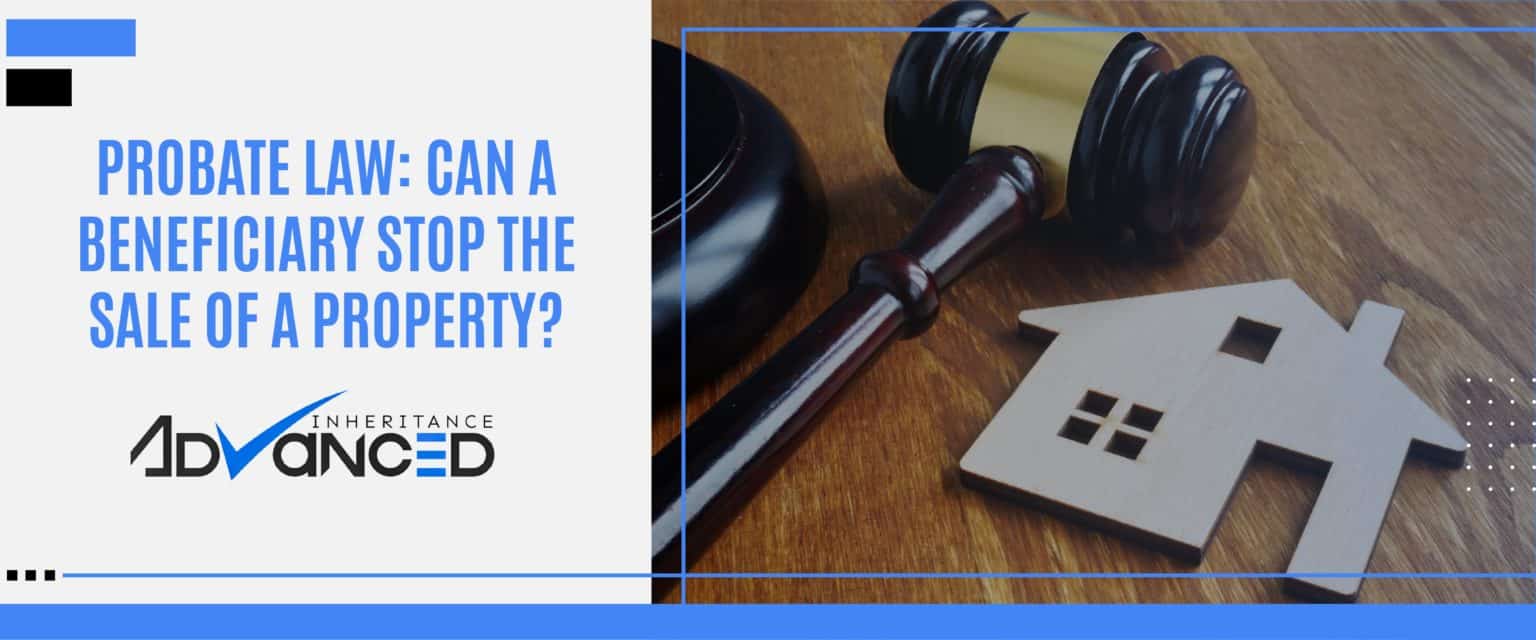Real-estate is not just a common type of asset, it also passes from one generation to the next through inheritance. Whether you are inheriting property or trying to pass your property down to a chosen beneficiary, know that there are basic tax implications associated with the probate process.
Estate and inheritance taxes are notoriously complicated, but understanding them is crucial when it comes to the safety of your inherited or gifted property. The good news? In most cases, you won’t have to worry about estate tax penalties for real estate because the vast majority will never be assessed at all!
Here’s what you need to know if you are an heir to an estate that includes real estate property assets.
Table of Contents
Important Real Estate Tax Terms To Understand
It’s important to know the difference between estate tax and gift taxes. An inheritance is a property transfer at death, while an estate tax applies on this type of transaction as well. When you hear the terms “estate” or “gift”, they are referring to one unified system that includes both types of transactions; it’s just treated differently depending on when in time it takes place
Estate Tax
Estate tax is a tax applied on property transfers when a decedent passes away. Gift tax on the other hand is a tax applied on property transfers while both parties are still alive and well. In the United States, the estate tax and gift tax are dealt with in a similar fashion. When you hear the terms “estate tax” and “gift tax,” they are actually referring to the same tax system although sometimes they can be treated differently and you can also do different things to prepare for them.
Inheritance Tax
Inheritance tax is a different system from estate tax and gift tax. The most important differentiating concept between inheritance tax and estate or gift taxes is that an inheritance tax is assessed to the person who inherits the assets instead of to the estate. Estate taxes do not exist on the federal level but certain states do have inheritance taxes which are important to understand.
We recommend that you speak with an estate tax attorney familiar with the specific laws of your state.
Don't Wait for Probate
How Much Is Inheritance Tax
How much is inheritance tax? The amount of tax you pay on your inheritance varies depending on the state where the deceased person lived and the value of the inheritance. Note that, as of 2022, only six states in the US have an inheritance tax.
In general, inheritance tax is calculated as a percentage of the value of the inheritance. The exact rate of the tax will depend on various factors, including the size of the inheritance, the relationship of the beneficiaries to the deceased person, and any applicable deductions or exemptions. This rate can range from single digits to anywhere around 15% to 18%.
Applicable deductions increase with the closeness of the beneficiary to the deceased. Surviving spouses, for example, don’t have to pay any inheritance tax in all six states. In New Jersey, domestic partners are also exempt from inheritance tax. In other states like Iowa, Kentucky, Maryland, and New Jersey, descendants are not taxed on their inheritance.
Note, however, that inheritance tax only applies when the inheritance exceeds a certain threshold set by the state. In Iowa, for example, inheritance tax is only charged on inherited estates that exceed $25,000. In Maryland, the threshold is $55,000.
Inheritance Tax Exemptions For Heirs And Beneficiaries By State
As mentioned earlier, different states have different thresholds and exemptions on inheritance tax, depending on the closeness of the beneficiary to the deceased. Below are some of the exemptions by all six states that charge tax on inheritance:
- Kentucky: Spouses, children, parents, and siblings are exempt from inheritance tax in Kentucky. Other beneficiaries also do not have to pay inheritance tax on estates worth less than $500 or $1,000, depending on the circumstances. Inheritance tax percentages can range from 4 to 16%.
- Nebraska: Parents, children, grandparents, grandchildren, and siblings have to pay inheritance tax on inherited estates of more than $40,000. This threshold is expected to rise to $100,000 in 2023. Charities and spouses are fully exempt. Unrelated beneficiaries will pay inheritance tax on amounts of estates beyond $10,000, which will rise to $25,000 in 2023. Other relatives such as uncles, aunties, nephews, nieces, and cousins are exempt up to $15,000, which increases to $40,000 in 2023.
- Iowa: Spouses, lineal ascendants, and lineal descendants are fully exempt from inheritance tax. Charities, however, are only exempt up to $500. Tax rates range from 3 to 9% on others.
- Maryland: Charities and immediate family members such as spouses, children, parents, siblings, grandparents, and grandchildren are fully exempt. However, there is an exemption threshold of $1,000 on other unrelated beneficiaries with rates up to 10%.
- Pennsylvania: Inheritance tax rates in Pennsylvania are 4.5%, 12%, and 15% on estates willed to adult children, parents, grandparents, grandchildren, and other beneficiaries, with a threshold of $3,500. Only spouses and minor children are exempt.
- New Jersey: Charities and immediate family members are fully exempt. Other relatives, including inlaws, are exempt up to $25,000. Inheritance tax rates can go from 11% to 16%, depending on the closeness to the deceased.
Suppose you are an estate beneficiary and concerned about inheritance tax. In that case, it is recommended that you consult with a tax professional or an attorney who can provide guidance on the specific tax rules and regulations in your state.
Do Beneficiaries Pay Inheritance Tax?
Except if the deceased is from the six states mentioned above, including Iowa, Kentucky, New Jersey, Pennsylvania, Nebraska, and Maryland, you don’t have to worry about inheritance tax. If the deceased is from any other state, they only have to pay an estate tax, and beneficiaries don’t get to pay anything on the estates they inherit after that.
Also, as mentioned above, not every beneficiary pays the inheritance tax, even in the mentioned states. Each of those six states has a standard for calculating inheritance tax based on the relationship between the beneficiary and the deceased.
How To Avoid Inheritance Tax
Inheritance tax can be avoided only before the death of the testator. Below are some ways you can avoid inheritance tax for your beneficiaries.
- Write your will and name your beneficiaries. Failure to do this will warrant the state to distribute your assets to heirs and relatives based on the state’s intestacy rules. Once this is done, heirs and beneficiaries must pay tax on their inheritance.
- Gift your assets to beneficiaries beforehand. This is because gifts are not taxed in 49 states of the US, except for Connecticut.
- Give your assets to charity. When you list a charitable organization as a beneficiary, they are not required to pay inheritance tax.
- Depending on the state you live in, will your estate to close family relatives, especially spouses and children. In some states, relatives like grandparents, grandchildren, siblings, and parents don’t have to pay inheritance tax.
- Don’t go beyond the inheritance tax threshold: Every state has a threshold to which inheritance tax is charged. Understand your state’s inheritance tax threshold and try to keep the inheritance below it.
- Put your assets in a trust: In all 50 US states, assets that are kept in a trust are not considered part of your estate.a
Do You Qualify For An Exclusion on an Inherited property?
The answer is usually no. However, there are stepped-up basic rules for inheriting real estate which you may benefit from. You may not need an exclusion at all when you sell an inherited home or property.
What Heirs Benefit From The Home Sale Tax Exclusion?
The home sale tax exclusion law is meant to provide homeowners with a generous tax exclusion when the property is sold. The tax law provides homeowners for up to $250,000 in profit exclusion from a home and up to $500,000 tax exclusion for married couples.
How Do I Make Sure I Qualify For A Home Tax Exclusion?
In order to qualify for the tax exclusion, the home must have been used as the main home for two years out of the prior five years before the sale.
Essentially, if you are looking to sell the home as soon as you inherit the property, you will not qualify for this exclusion. You would have to live in the home for at least two years to qualify.
Again though, you might not actually need the exclusion because of the stepped-up basis rules. If you have specific questions about these laws, you should consult an attorney in your state or a probate tax attorney.

How does the U.S. estate tax work for real estate?
The U.S. estate tax system is a complicated one, but it’s worth understanding because of how much money can be at stake for your family and loved ones after you pass away. There are 12 different brackets with rates ranging from 18% to 40%. Taxable estates ranging from $0 to $10,000 are taxed at an 18% rate, and on the higher end, the amount of taxable assets that exceed $1 million is taxed at a 40% rate. For real estate purposes, it’s also important to note that this tax law includes both money and property – so if someone leaves $20 million in cash and $10 million worth of real estate to heirs, it would be considered a $30 million estate (and therefore subject to taxes).
If you want peace of mind knowing your family will be taken care of financially after you pass or you want to know the implications of the money you will be receiving as an heir, it’s important to understand how the U.S. Estate Tax Laws work. If you have real estate that is currently being probated, we can help take care of the wait by issuing a probate advance to get you cash within 24 hours.
Estate taxes are paid directly by the decedent’s estate while inheritance taxes are paid by the heir or beneficiary inheriting the property. Here is a breakdown of states and their associated tax laws. States that have an estate tax different states have different thresholds for activating the tax:
States with an estate tax:
- Connecticut
- Illinois
- Maine
- Massachusetts
- Minnesota
- New York
- Oregon
- Rhode Island
- Vermont
- Washington (state)
States with an inheritance tax:
- Iowa
- Kentucky
- Nebraska
- New Jersey
- Pennsylvania
State that has both estate and inheritance tax
- Maryland
Some States Have Other Estate Tax Rules Like Homestead Exemptions
Homestead exemptions apply to families that inhabit a dwelling and have declared it their homestead. In this circumstance, the homestead is exempt from estate taxes upon the owner’s passing.









